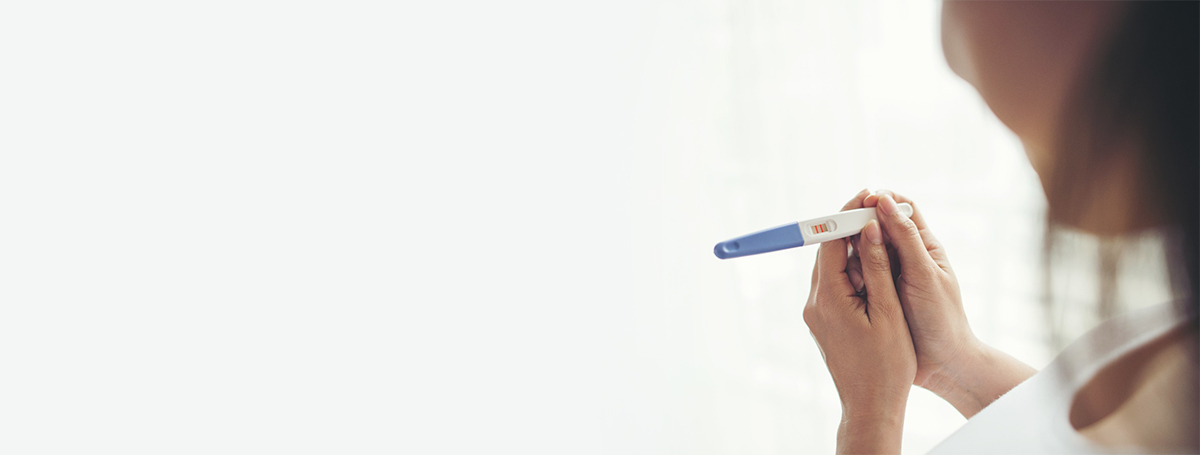Symptoms of Pregnancy in the First Month : What Happens in the First 4 Weeks
Embarking on the pregnancy journey is like entering a much awaited yet mysterious new realm. In the first four weeks, you don’t know what to expect when you’re expecting. From a missed period to the onset of fatigue and perhaps a touch of morning sickness, these early symptoms can be both exciting and, let’s be real, confusing to deal with. So, let’s take a closer look at what happens during these initial weeks of pregnancy and how your body begins to signal the incredible journey that lays ahead.
What Happens in the First Month of Pregnancy?
In the first month of pregnancy, subtle shifts take centre stage. A missed period hints at the possibility of conception, while light bleeding may occur instead of a period for some. Hormones play their role—making breasts tender and possibly sparking a lot of mood swings. Despite not being officially pregnant in the first week, the body quietly readies itself and the countdown begins, setting the tone for the trimesters to come.
What Are the Early Signs of Pregnancy?
Some 1st Month Pregnancy Symptoms Are:
- Missed Period: If you usually experience regular menstrual cycles, the most reliable and healthy pregnancy symptom is a missed period.
- Bleeding or Spotting: Light bleeding or spotting, also known as implantation bleeding, may occur as the embryo (baby in the initial stage) attaches itself to the uterus lining. But if you experience any bleeding during pregnancy, it’s advisable to consult your doctor for evaluation.
- Cramping: Period-like cramping is a normal 1st month pregnancy symptom. It occurs as the body undergoes significant changes to accommodate the growing embryo.
- Sore Breasts: Pregnancy hormones can cause breasts to become larger, tender, and sore – similar to premenstrual symptoms.
- Additional Symptoms: Early pregnancy may bring about other symptoms such as fatigue, increased frequency of urination and mood swings as well.
Common Symptoms of Pregnancy in the First Month
Some Other Symptoms of Pregnancy in the First Month Include:
- Backache and headache
- Breathlessness
- Constipation
- Piles or haemorrhoids
- Indigestion and heartburn
- Itchiness of the skin with tingling and numb hands
- Cramping in the legs
- Vaginal discharge
- Vaginitis (inflammation of the vagina)
What Happens During Weeks 1-2 of Pregnancy?
While the pregnancy technically begins now, you’re not officially pregnant by conventional standards. Doctors typically count pregnancy as 40 weeks from the first day of your last period. However, since ovulation occurs around 14 days, conception likely happens during this time. So, your doctor includes this week and the next in your pregnancy, even before actual conception. It might be surprising, but you’re not truly pregnant in your first week.
By the second week, your period might be ending, and ovulation is approaching. Successful intercourse at the week’s end can lead to conception when the egg meets the sperm.
What Happens During Weeks 3-4 of Pregnancy?
By the third week of pregnancy, the sperm and egg unite in the fallopian tube, forming a single-cell zygote through fertilisation. This zygote carries genetic material from both you and your partner, laying the foundation for your future baby’s development. Moving down the fallopian tube, it divides into a growing cluster of cells.
When you are 4 weeks pregnant, an ultrasound would reveal a small black gestational sac resembling a tiny dot nestled in the uterine lining. Notably, at four weeks, the embryo or baby is no larger than poppy seeds, nearly microscopic. Isn’t that so completely awe-inspiring?
Amidst the joy of creating life, do not forget to nurture yourself. Take the time to care for yourself, not just as an expectant mother but as the incredible woman you are. Listen to the rhythm of your heart, indulge in moments of quiet reflection, and surround yourself with love and support. Keep an eye out for the signs, and maybe, just maybe, start thinking about a few baby names too. 😊


The first trimester of pregnancy is a critical period that spans approximately 12 weeks, marking the start of the journey to childbirth.
Healthy pregnancy symptoms can manifest as early as the first week. If you start seeing any pregnancy symptoms in week 1, immediately consult a doctor.
The answer is YES! While a home pregnancy test may provide an indication, consulting a healthcare professional for confirmation is advisable for accuracy and assurance.
Confirming pregnancy in one week won’t give you a definite answer; waiting for a missed period or using early pregnancy tests and visiting your doctor is advised.
Hidden symptoms of pregnancy in the first month can include subtle shifts such as fatigue, mood swings, and heightened sensitivity to smells that may not immediately indicate pregnancy.


